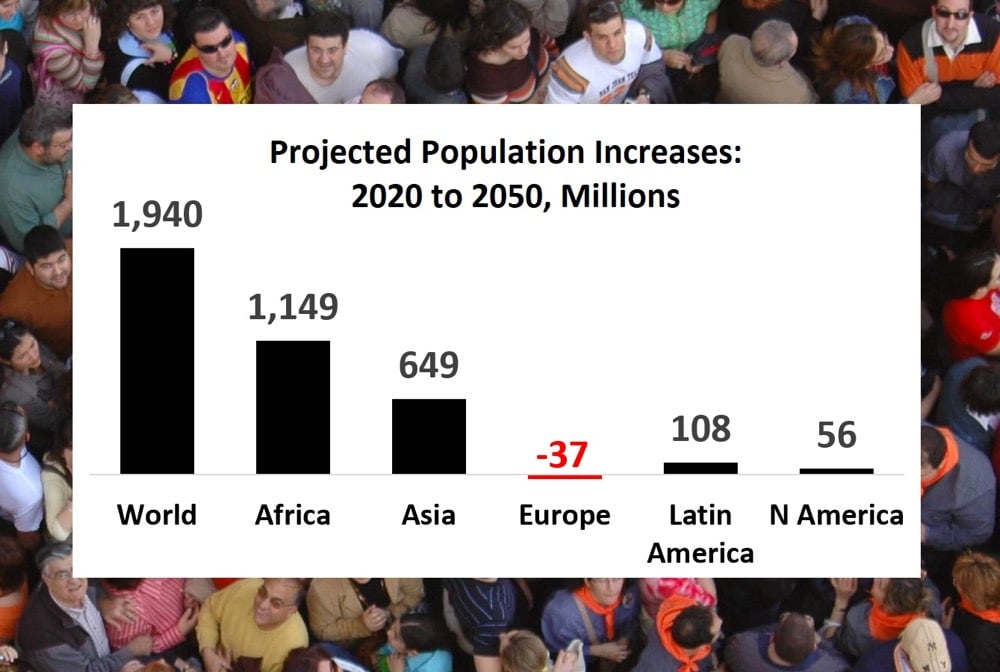A 2020 Overview of Global Population Trends
Demography is destiny, or so the saying goes. So this YaleGlobal report on the global population trends is worth paying attention to if you want to know where the world (and world politics) is going. Here’s the gist:
The world population now stands at 7.8 billion inhabitants, having reached the 7 billion milestone in 2011. Demographers expect the 8 billion milestone in 2023, with global population projected to reach 9 billion by 2037 and 10 billion by 2056. This growth is slightly faster than projections from just a few years ago.
World population currently grows at 1 percent annually, having peaked at 2.1 percent in 1968. That annual growth rate is expected to continue declining, reaching 0.5 percent by midcentury. The current annual increase of world population is 81 million, lower than the peak level of 93 million in 1988. Annual additions are projected to continue declining, reaching 48 million by 2050. Of the nearly 2 billion increase in world population expected by midcentury, most will take place in less developed regions. Africa leads, expected to add more than 1 billion people over the coming three decades, followed by Asia with about 650 million. Europe’s population, in contrast, is projected to decrease by 37 million over this period.

India will soon pass China as the most populous country in the world and Nigeria’s population will double to blow right by the US for #3 in the world:
Two countries have reached the billion mark: China and India, each with current populations of 1.4 billion, reached that milestone in 1980 and 1997, respectively. India’s current rate of demographic growth is double China’s, 1.0 versus 0.5 percent. India’s population could overtake China’s by 2027. No other country is expected to reach a billion during the 21st century. Nigeria, projected to grow to 733 million by century’s close, will move into third place by midcentury, overtaking the United States, anticipated to have 434 million people by 2100.
The populations of some countries will more than double by the middle of this century while the populations in other countries will decline:
The population growth is extraordinary, with most occurring in the world’s poorer countries. More than 50 developing countries, most in Africa, post growth rates no less than 2 percent per annum. By midcentury about half of those countries are projected to see their populations more than double, including Angola, Burkina Faso, Democratic Republic of Congo, Mozambique, Niger, Nigeria, Tanzania and Uganda.
At the same time, some 20 countries, particularly more developed countries, navigate uncharted demographic territory of population decline and rapid aging. These include Greece, Hungary, Italy, Japan, Poland and Spain. This number could nearly triple by midcentury, and expected newcomers to population decline will soon include China, Germany, Russia and South Korea.





Stay Connected